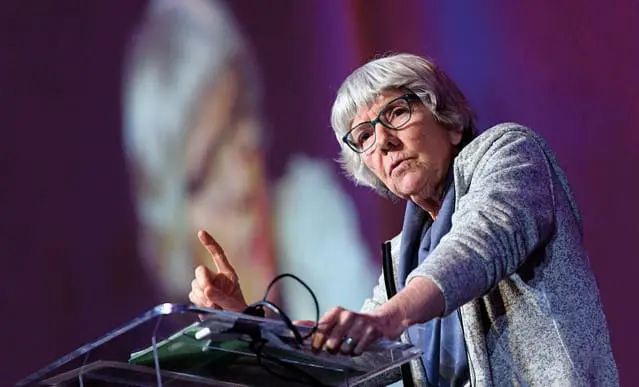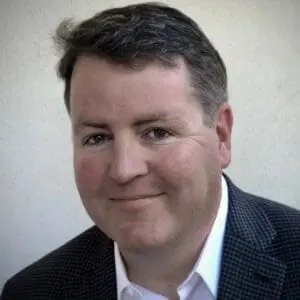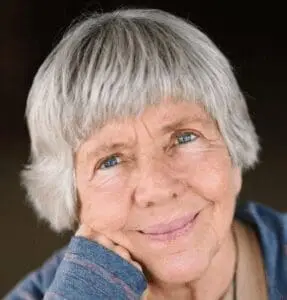Should therapists be activists? To be sure, we’re typically more at home waging our battles against defense mechanisms, irrational beliefs, dysfunctional family systems, and, when we’re at our bravest, insurance companies. Rare is the therapist who openly takes on political causes or corporate conglomerates. Many of us think those battles are reserved for people who studied in a different building in grad school.
Not so, says activist Mary Pipher, retired therapist and bestselling author of Reviving Ophelia and Writing to Change the World. In fact, she believes therapists are perfectly equipped to organize communities for a common cause. A keynote speaker at this year’s 35th-anniversary Networker Symposium, she took a moment to describe her own reawakening to activism as part of the battle against the proposed Keystone XL pipeline, designed to bring new supplies of oil down from the north of Canada to America’s heartland with—what its opponents argue—potentially devastating environmental consequences.
——
RH: Tell me about the evolution of activism in your life.
PIPHER: I remember when I read Anne Frank as a child and realized the great injustice in the world. I found I was someone who cared about that. I have a long history of involvement and of trying to make things better. I was an activist in Berkeley in the ’60s, but like most people, I’ve been pretty quiet for the last 20 or 30 years.
RH: What brought you back to activism?
PIPHER: This last year, I’ve worked to stop the Keystone XL pipeline from tapping through, and potentially destroying, our state of Nebraska. Our state is poor. All we have is land and water. The people who make a living do it primarily by farming and ranching. So if we have an oil spill, or if the rivers are polluted or the aquifer is polluted, all of our livelihood disappears, not to mention our drinking water. And, as one rancher said, you really can’t afford to give cattle bottled water. For me, it’s been a new activism. The trigger was realizing that I wasn’t doing enough, and that if people like me weren’t doing more, this world was really in trouble.
RH: What kind of trouble?
PIPHER: In my opinion, things are very, very dark right now, and we’re about to lose control of our democratic process in this country. I don’t think we can look to politicians to change things. I don’t demonize them, but I think politics has become so corrupt that good people with good intentions are ultimately faced with the choice of “compromise your principles and be corrupt, or be gone.”
RH: You see it as a systemic problem.
PIPHER: Absolutely, and if anyone is going to help, it’s going to be people normally outside the political process—like those of us in this profession. And that’s really the great discovery that I’ve made this year, as I’ve worked to stop this pipeline. Nobody’s going to save us but ourselves, and even though we’re up against arguably the most powerful, richest corporation in the world, with all this money and all these attorneys and PR groups and lobbyists and so on, a very small group of us, probably no more than 20 people, has managed to stop this pipeline for over a year.
RH: How did this happen?
PIPHER: Basically, feeling powerless becomes a self-fulfilling prophesy. If you don’t think you have power, you don’t have power. If you decide to empower yourself and to act, and decide to do something, you have power. For example, almost all of the actions I’ve planned in the last year started out in my living room, talking over the situation and deciding what we can do to have an impact, given what’s happening at the current moment.
RH: How did your own sense of helplessness turn into an empowerment?
PIPHER: The tipping point for me was realizing that people are going to come in and mess with my state. My great-grandparents homesteaded this state. All my grandchildren live in this state. As a mother, a grandmother, and a person who’s grown up here, this really felt like an assault on me. So I just said to a couple of friends, “I really think we ought to do something about this. Come over to my living room and let’s talk about what we can do.” And before we knew it, we had a little network.
RH: A true grassroots organization.
PIPHER: Most of us are educated to believe we’re powerless, and that we need some superhero to come along and rescue us. In fact, neither one of those things is true. We aren’t powerless; we only lose it when we give up. It looks like tomorrow a bill is going to be heard and voted on in our capitol that basically gives our state to the pipeline. Everyone in the organization, we’re going to be there listening to the testimony, even though we know we probably can’t affect the vote. And it may be an important turning point for the worse in this struggle, or it may be a catalytic event that really helps the entire state just say no to these legislators.
RH: So what do people need to become more involved in fighting for the things they believe in?
PIPHER: People are eager to hear that they have power and that they can do something. Now it turns out you can have a lot more power than you think. Take, for example, all the news right now about the pink slime, this strange ingredient in beef. It’s led to companies going bankrupt and supermarkets dropping certain products, but it all started with one investigative journalist whose article went viral, which led to the exposure and downfall of the pink slime.
With our cause, it’s really a matter of honor. I mean, why are you alive if not to protect what you love? Most people feel that way, although right now, that particular idea isn’t very well articulated in the culture. I want people to hear it from me. Why are you alive if not to protect what you love?
RH: Does it feel like there’s a lot of overlap between therapy and activism for you?
PIPHER: One is written small and one is written large. The cycle that leads from trauma to transcendence, from confusion to clarity, from helplessness, anger, and grieving to empowerment, is the same cycle as the one that leads from a recognition of injustice to activism. Therapy and activism have a common aim of increasing the moral imagination. Individual therapy works to help clients have more sustaining relationships. Community work and activism are all about relationships. It’s becoming part of what Martin Luther King called the “beloved community.”
Ultimately, therapy is really about action. You want clients to do more than talk. You want them to be able to make behavioral changes and have their lives be meaningfully different in some way. It’s the same with activism. Action is really an essential part of any kind of transformative process. So I think they’re very, very similar. I’d encourage therapists interested in having an impact on the world to start by calling a meeting of the people they know in their living room to see what problems need to be addressed.
RH: Are you saying we should be activists?
PIPHER: The skills of the therapist and the skills of the community organizer are the same skills. Dealing with people, negotiating conflict, defusing situations, framing situations, elevating the conversations, these are all the same skills. I work with community organizers who say, “You’ve really missed your calling. You should have been a community organizer.” I just laugh, because, really, that’s what we are—only the largest community that we usually try to organize is the family.
RH: When I talk to colleagues about becoming more involved socially and politically, they worry their clients might be turned off if they get more politically involved.
PIPHER: When I was a therapist, I had a lot of conservative clients, and I didn’t want my political views interfering with my therapy practice. But if your goals are to help all living beings, to give our grandchildren a future—that isn’t a political goal; that’s a human goal. Anyone should be proud to be identified with that. Therapists are messengers: they know how to use language in a way that offends no one. So the answer I’d give therapists who are worried about becoming politically involved is to engage on the deepest level, which is beyond the political level.
RH: What about people who don’t have the time to get involved?
PIPHER: A lot of people see activism or advocacy as one more thing on their To Do list that’s already too full. But actually, it ends up being an energy producer. Some of the reason we’re so busy and stressed and despairing is we’re running around in circles. My activism over the past few years has not only been pleasant, but has led me to make new friends, feel empowered, and enjoy myself mightily. Despite all the hard work, I’ve had more energy this year than I’ve had in a long time. To be sure, my life hasn’t gotten simpler, but there’s no doubt that my activism has given me more energy.
Ryan Howes
Ryan Howes, Ph.D., ABPP is a Pasadena, California-based psychologist, musician, and author of the “Mental Health Journal for Men.” Learn more at ryanhowes.net.
Mary Pipher
Mary Pipher, PhD, is a clinical psychologist, author, and climate activist. She’s a contributing writer for The New York Times and the author of 12 books, including Reviving Ophelia, Women Rowing North, and her latest, A Life in Light. Four of her books have been New York Times bestsellers. She’s received two American Psychological Association Presidential Citation awards, one of which she returned to protest psychologists’ involvement in enhanced interrogations at Guantanamo.














